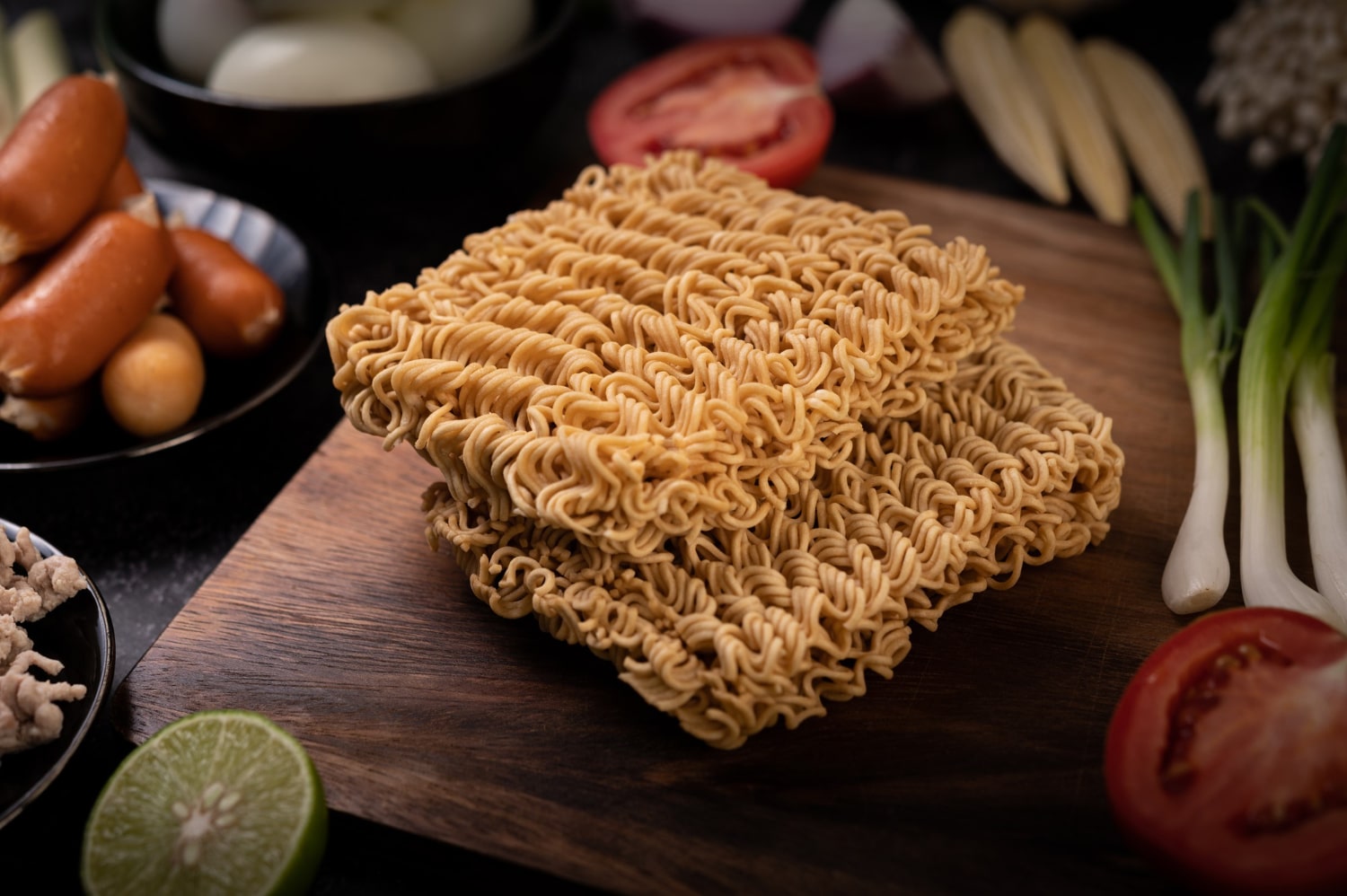As the name implies, instant noodle is a variant of noodle that can be prepared ‘instantly’ than the authentic ramen noodle variants. Fresh noodles are formed into workable space, and it is later on drenched in deep-frying oil. This draws out moisture, providing enough months for it to be consumed.
To rehydrate an instant noodle, you may pour boiling water inside the cup before closing it. You may also cook instant noodles inside a small saucepan and allow the boiling water to cook your noodles. Instant noodles surpass shelf life against fresh noodles—but the question relies on how long it can be? How long before an instant noodle expires?
Can I Eat Instant Noodles After Expiration Date?
Instant noodles, also known as ramen noodles by the international market, are a grocery staple made with wheat flour, water, salt, and alkaline. The alkaline produces a chewy, bouncy bite on your noodles. As mentioned by several noodle manufacturers, it is noted that cup noodles expire six months after production. In comparison, the bagged instant noodles can last up to 8 months.
After that period, the freshness and quality of instant noodles start to deteriorate. The taste, odor, and texture will also begin to change—and could affect the overall quality of your noodles. Food items consumed after the expiration date can impose complications to your digestive tract due to food poisoning.
If you are curious to try what happens to the overall quality of instant noodles after the expiration date, several Japanese blogs have tried and shared their experience of consuming noodles away from their expiration date.
- Six months after expiration, the soup starts to taste bland. The structure of the fried noodle also begins to deteriorate, creating a mushy, light soup. Oils, condiments, and other ingredients used to make instant noodles are already diminishing their qualitative properties.
- Eighteen months after the expiration, the oils used in creating the instant noodles will start to brown, resembling a rust-like color. This is done due to oxidation, wherein the remaining liquid inside the ramen noodles is released, mixing with other elements. Consuming noodles on this condition will produce an upset stomach and another mild discomfort to your digestive tract.
- Twenty-four months after the expiration, the instant noodles will start to turn crumbly. Molds and other spores may be visible on the instant noodles themselves and the seasoning. The oil included in instant ramen will turn into a black, grease-like substance. This by-product is already toxic and must not be consumed. If consumed in small amounts, you will taste a bitter-sour taste. The soup will also look like a greenish-brown blob.
- Thirty months after expiration, the noodle’s oil will turn into black color, similar to crude fossil oil. The noodles are already broken into pieces and can release an unwanted spore scent that can be irritating. Consuming large amounts of expired noodles can produce severe stomach irritation that can be life-threatening.
- Thirty-six months after expiration, the soup should not be consumed further. It is already decomposed, the elements of the stock are no longer distinguishable, the scent is already toxic. Discarding expired noodles within this period is highly recommendable.
What If I Eat Expired Noodles?
Eating expired noodles is still doable. Several blogs recommend that you can still consume expired instant noodles within three months. However, food produced within that period drastically reduces the flavor, texture, and aroma of freshly-bought packed noodles. If you are short on cash—and only expired noodles are on your shelf, inspecting the quality of your food is a must.
Instant noodles that are months away from their expiration date have questionable edibility levels and digestive track risks. The first thing that you will observe with consuming expired instant noodles is their overall texture. The natural stretchy strands may reduce their elasticity. Dried soup and vegetables that encompass the instant noodle’s stock may reduce its original flavor.
As it is, instant noodles already have a prolonged shelf life. Fresh noodles, or authentic ramen noodles made by hand, can only last 3-4 days of cooking time. Deep-frying your ramen noodles can produce a crispy texture to your noodles, drawing out excess moisture.
Loss of moisture in food inhibits the growth of several microorganisms, allowing them to last longer. In the case of instant noodles, it will also contribute to the overall flavor of your food. Vitamins and minerals are also incorporated into the instant noodle mixture to serve as antioxidants. Reduced oxidation on food will provide longer shelf life for your noodles.
Consuming expired noodles can still be done—only if it is eaten within the three-month probation period. You may also check on the noodle’s overall quality before cooking it. If molds, spores, and other microorganisms are already producing, they must be disposed of immediately. Consuming expired foods may irritate your stomach lining, which can cause stomach illness—or even food poisoning.
How to Store Instant Noodle?
Instant noodles are a reliable, quick food source. Having a couple of packs and cups of noodles will allow you to consume tasty soup without complying with strenuous tasks like creating the actual noodle and stock. Although this food is already protected on its special seal, proper storage is still recommended.
Dried products are prone to spore and moisture build-up, which can quickly damage your noodle even before the expiration date. Listed below are some precautionary measures that you may consider before maintaining the quality of your food.
- Instant noodles must be stored away from sunlight and heat sources. This may deteriorate the packaging and the contents of your food.
- Instant noodles are suggested to store at room temperatures. Oils, condiments, and other materials may change their composition once placed on cold areas.
- Oils tend to solidify at cold temperatures. Condiments melt in extreme heat conditions.
- Store your instant noodles in areas with low humidity. High levels of humid may produce moisture to your food, reducing the overall quality of your noodle.

